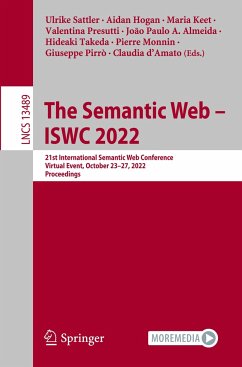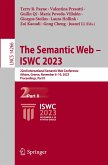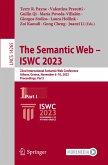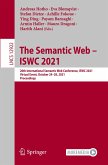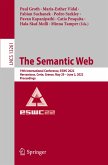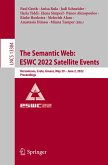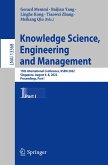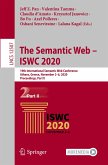This book constitutes the proceedings of the 21st International Semantic Web Conference, ISWC 2022, which took place in October 2022 in a virtual mode.
The 48 full papers presented in this volume were thoroughly reviewed and selected from 239 submissions. They deal with the latest advances in fundamental research, innovative technology, and applications of the Semantic Web, linked data, knowledge graphs, and knowledge processing on the Web. Papers are organized in a research track, resources and in-use track. The research track details theoretical, analytical and empirical aspects of the Semantic Web and its intersection with other disciplines. The resources track promotes the sharing of resources which support, enable or utilize semantic web research, including datasets, ontologies, software, and benchmarks. And finally, the in-use-track is dedicated to novel and significant research contributions addressing theoretical, analytical and empirical aspects of the Semantic Web and its intersection with other disciplines.
The chapters "Hashing the Hypertrie: Space- and Time-Efficient Indexing for SPARQL in Tensors", "Agree to Disagree: Managing Ontological Perspectives using Standpoint Logic", "GNNQ: A Neuro-Symbolic Approach to Query Answering over Incomplete Knowledge Graphs", "ISSA: Generic Pipeline, Knowledge Model and Visualization tools to Help Scientists Search and Make Sense of a Scientific Archiveare" are licensed under the terms of the Creative Commons Attribution 4.0 International License.
The 48 full papers presented in this volume were thoroughly reviewed and selected from 239 submissions. They deal with the latest advances in fundamental research, innovative technology, and applications of the Semantic Web, linked data, knowledge graphs, and knowledge processing on the Web. Papers are organized in a research track, resources and in-use track. The research track details theoretical, analytical and empirical aspects of the Semantic Web and its intersection with other disciplines. The resources track promotes the sharing of resources which support, enable or utilize semantic web research, including datasets, ontologies, software, and benchmarks. And finally, the in-use-track is dedicated to novel and significant research contributions addressing theoretical, analytical and empirical aspects of the Semantic Web and its intersection with other disciplines.
The chapters "Hashing the Hypertrie: Space- and Time-Efficient Indexing for SPARQL in Tensors", "Agree to Disagree: Managing Ontological Perspectives using Standpoint Logic", "GNNQ: A Neuro-Symbolic Approach to Query Answering over Incomplete Knowledge Graphs", "ISSA: Generic Pipeline, Knowledge Model and Visualization tools to Help Scientists Search and Make Sense of a Scientific Archiveare" are licensed under the terms of the Creative Commons Attribution 4.0 International License.

